Who is that girl I see?
Thoughts on a changing body and the pressure to shrink in a fatphobic, ageist world 🪞
“Who is that girl I see, staring straight back at me? When will my reflection show who I am inside?”
Christina Aguilera and/or Mulan, Reflection (1999)
There’s this weird thing that happens as you age.
Day-to-day, you don’t notice many changes. You wash your face and maybe spy a new sun-spot. You try on an outfit and notice it’s a bit snug in the arms. Whatever. You’re late for your kid’s girl scout meeting.
But then, randomly, you’ll be out in the world…perhaps at a suburban strip mall and you’ll catch a glimpse of some old, hunched-over person next to you and then you realize it’s a mirror and that person is you and your inner monologue devolves into a Talking Heads song: “How did I get here?”
This happened to me on Mother’s Day. I had a spectacular day1 which ended with planting in the backyard alongside Brad and the girls. Abby swiped my phone and took a video of me dancing around in my gardening dress and I was appalled: “WHO IS THAT GIRL I SEE?” The disconnect between how I thought I looked and what the camera showed was jarring. Surely that couldn’t be me.
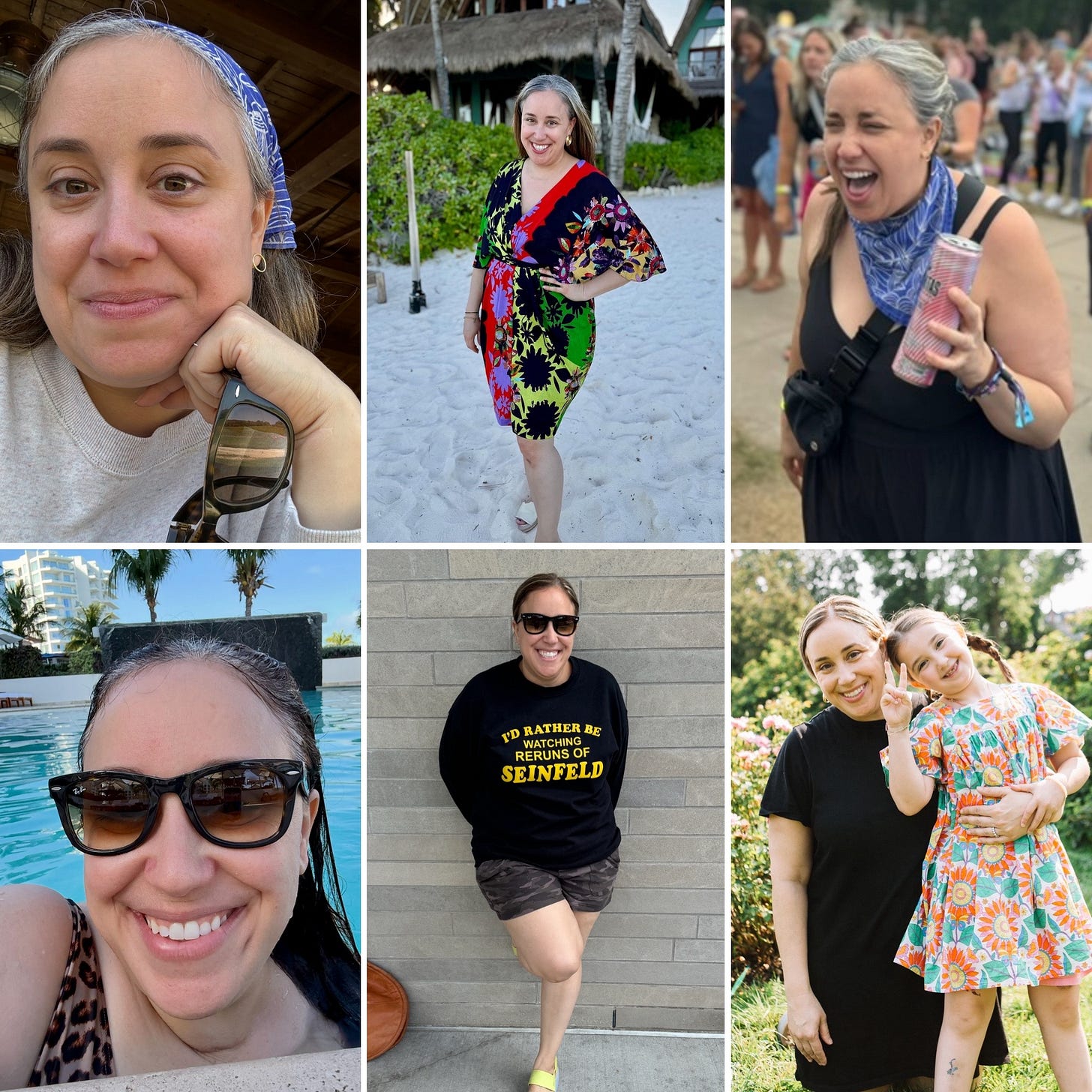
Like most millennial women, I have a complicated relationship with my body. Who can blame us? Growing up we were all told—both directly and passive-aggressively—what we should aspire to look like and that was a specific amalgamation of:
Britney Spears’ abs
Drew Barrymore’s smile
Jennifer Love Hewitt’s boobs
JLo’s booty
Katie Holmes’ wholeeee attitude
Abercrombie & Fitch clothes
In high school, I monitored Britney Spears’ body more than the weather. HOW did she look like that? I’d been a petite, scrawny kid who took pride in being able to shop at 5-7-9 at the mall. I liked being the girl the carpool moms asked to sit in the middle seat because I was the “smallest.”
This is what Virginia Sole-Smith calls in her book, Fat Talk: Parenting in the Age of Diet Culture, “thin privilege.”
“Thin privilege refers to the way our world is built to accept, support, and celebrate, thin bodies. Thin privilege means never having to worry if you’ll fit in the seat at a restaurant, on an airplane, or in your friends’ dining rooms…when people [say], ‘you’re so skinny - I hate you!’ they are expressing anti-fatness not anti-thinness. Because these comments really mean, ‘I wish I had the same privilege as you.’ Jealousy is not the same experience as shame.”
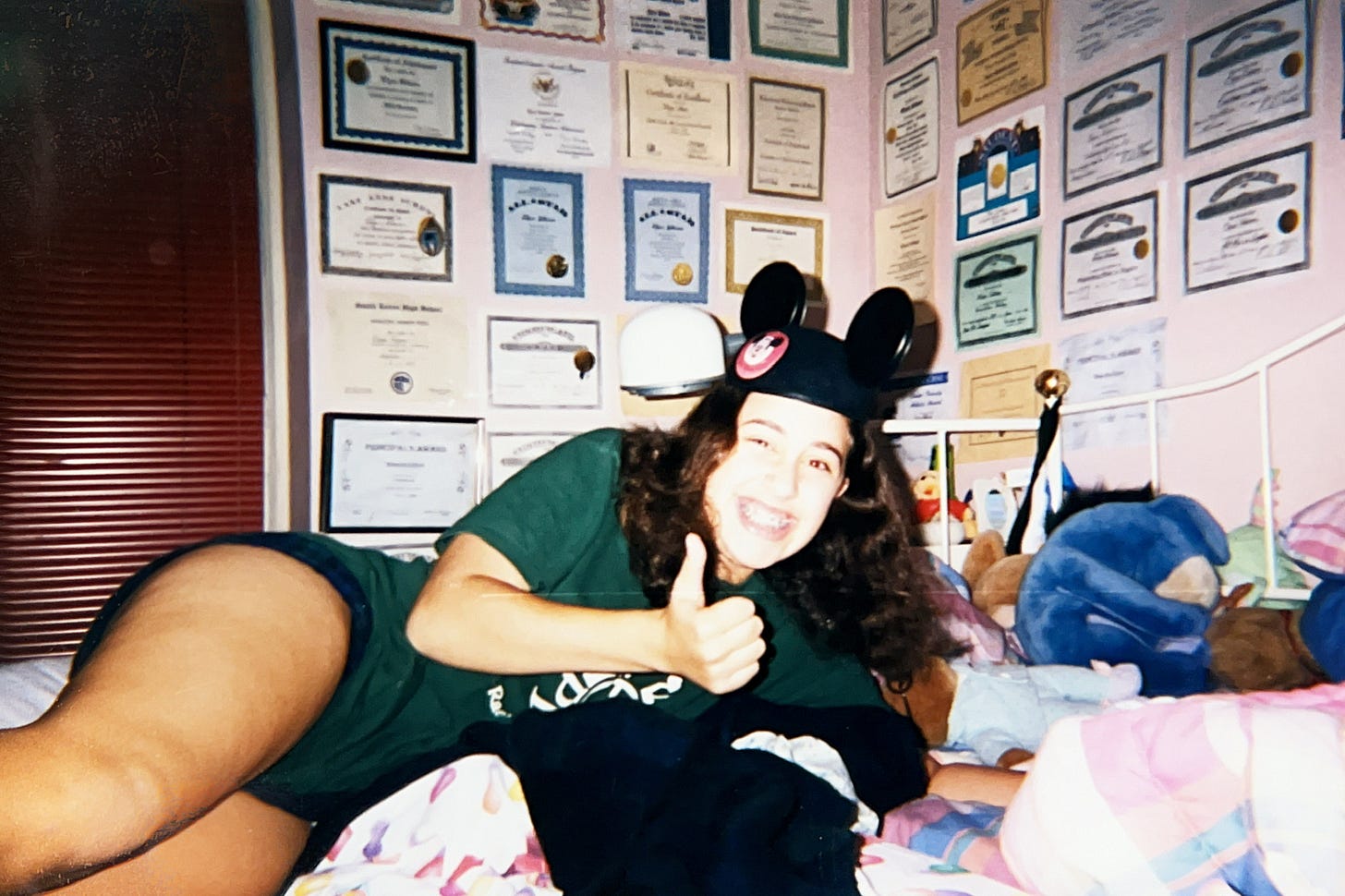
Then puberty snuck up on me. I sprouted hips and breasts and cellulite. Suddenly, I didn’t want to be in a bathing suit—let alone anywhere near a pool. I didn’t want to wear shorts. I actually didn’t want to wear anything other than a sensible A-line dress even at the age of 13 because I was told it was “flattering” on my body type.2
Growing up, I was constantly warned about my family’s “fat genes,” like they were ghosts waiting for me in the parking lot behind a donut shop3. I’m not blaming anyone specifically because that’s just kind of how everyone talked about bodies and weight in the 90s, but my mom spoke with horror about once being a size 16 (can you imagine!?!?!). My dad liked to share a cautionary tale about how he couldn’t get a job after law school because he was overweight. In my mind, these cautionary tales told a grim and binary story:
You could be thin / beautiful / in-control / employable / lovable / safe or you could be overweight / ugly / lazy / gross / unhealthy / unworthy.
I don’t think this was the intended message of these stories and conversations, if anything they were in direct contrast to a lot of the positive messages I heard growing up: I was smart and capable and worthy and loved and I could be anything I wanted to be. It was confusing! Which was I? Perfectly imperfect—warts and all? Or one sleeve of Oreos away from not being able to get a job?
It wasn’t just my parents. It was their parents. Their siblings. I cannot remember a single extended family function where the FIRST thing someone commented on was not my size / body / hair / appearance.4 Even at my mother’s funeral, an aunt made a comment about my body as she introduced me to someone, “This is Adrienne’s eldest daughter, Elyse. She’s not usually this chubby but she’s pregnant with her second child.”
Thanks…5
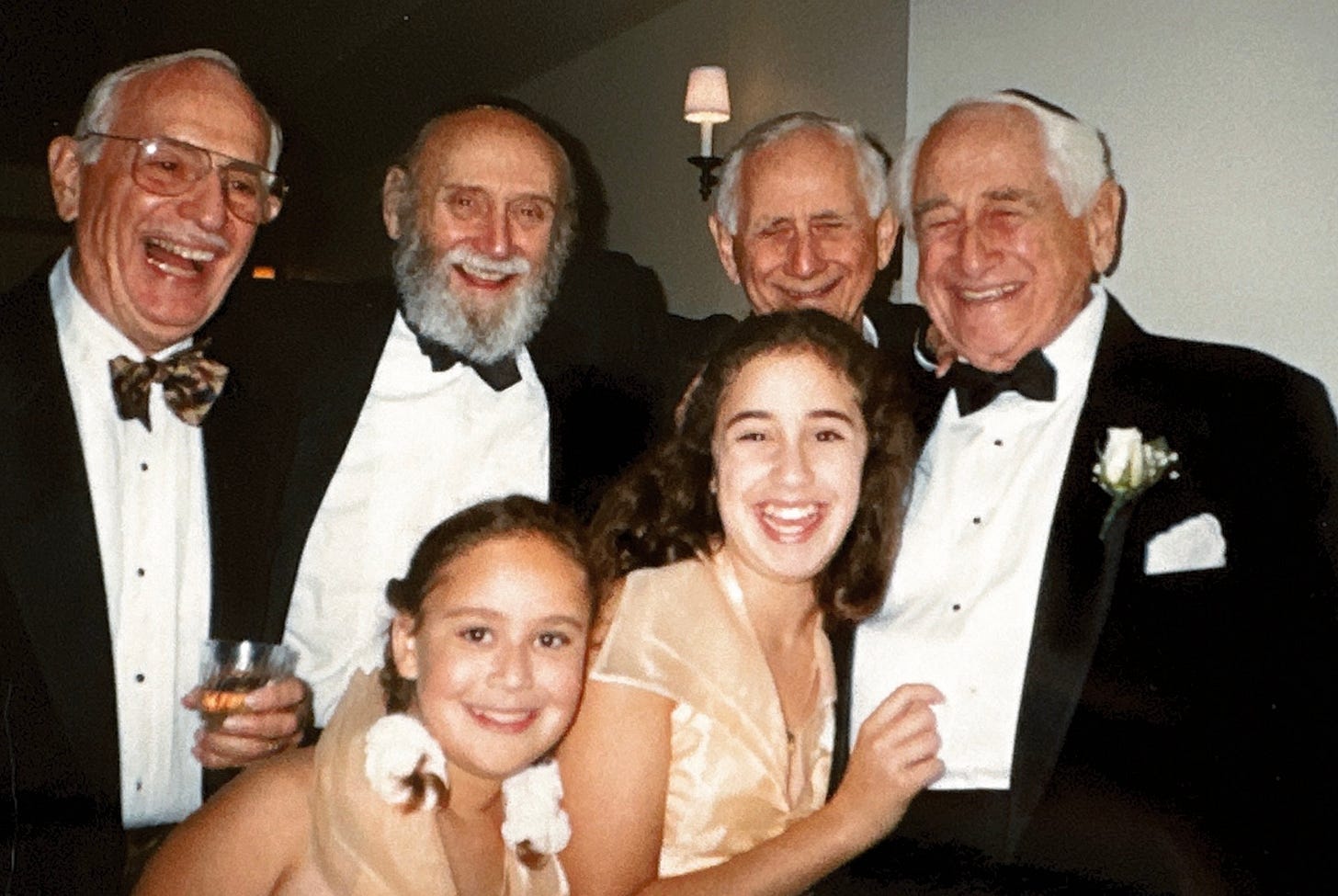
My first body-image-related meltdown was at my cousin’s wedding. I was a junior bridesmaid, forced into a golden sailor neckline dress (see above). It was objectively fine, but in my warped tweenage mind, it was horrid. My arms. My waist. I didn’t even have the language to articulate why I was so uncomfortable. I just knew I felt “gross.”
I gained weight throughout high school and college—as a growing body is designed to do! But no one told me this was normal and fine and that bodies change and fluctuate infinite times throughout your life. Instead, I felt pressure to stay small. This was peak Victoria’s Secret Angels culture. News anchors and talk show hosts called Monica Lewinsky a fat slut seven days a week. Remember in Love Actually when every character body-shamed Natalie again and again and we all laughed? This was what millennials grew up hearing: 24/7 nonstop commentary about women’s bodies.
By the age of 19, I was fluent in Weight Watchers points. My parents were proud when I lost 30 pounds the summer between my freshman and sophomore year of college. My mom rewarded me with new dresses from Loehmann’s and lunch dates to Subway for 6-inch cold turkey sandwiches on wheat bread with no cheese or mayo.
As an adult, I’ve gained and lost weight too many times to count. Blah blah blah. It’s boring. Looking back at old photos of me is a weird exercise: I look adorable, but I remember feeling SO distracted by my insecurities.
Over the decades, my body has changed dramatically, both internally and externally. Now I have permanent heartburn. Rampant gray hairs. A million scars in both public and private places. Bizarre autoimmune diseases (that’s plural). It’s not pretty, folks. I have enough maladies to throw down in a medical complaint-off against the oldest man in the temple lobby at any given moment.
This feeling though? It’s no stranger. It’s grief. I am grieving my younger, stronger, more flexible body. The one I had time and emotional energy to nourish because I wasn’t caring for two small children…when my hormones and my lifestyle were both different. But let’s not get it twisted; I resented that body, too. Even at my smallest, I was still at war with the scale. Punishing my body with private restrictions, bizarre rules and intense workouts. And STILL never feeling skinny enough.
So, what is one to do with all this body grief? This feeling of missing the body I’ll never have again and the body I never had at all.
Here are some reframes and/or things I do when I’m feeling down about my body:
I try to find gratitude for everything my body has done and continues to do, from being pregnant to breastfeeding my babies, and from swimming in the ocean to hiking around foreign countries. Who knows what it will or won’t be able to do in the future, but today I feel grateful for how far it’s taken me and all the amazing experiences it’s given me.
I remind myself I have the power to break the cycle of toxic body talk for my daughters. I do this by following body-positive creators like Body Positive Home and reading books like Fat Talk by
(she also has an enviable Substack called Burnt Toast if that’s more your thing).I reframe movement as a reward for my body rather than a punishment. I don’t HAVE to take a walk because I ate a croissant. I GET to move my body! I CAN move my body. Miraculous. I also try to remember that food has no moral value. Broccoli isn’t virtuous. Cupcakes aren’t evil. Food is just food.
I adjust my internal monologue. Instead of “I feel fat,” I try “I feel uncomfortable.” What specifically feels uncomfortable? Is it my bra? My waistband? Do I just need a shower and some thigh-chaffing magic? Those are solvable problems.
I buy clothes that actually fit. If a larger size feels more comfortable, there’s no downside. Relatedly, I find it helpful to give away clothes that no longer work for my body. They used to just stare mockingly at me from my closet…but I didn’t appreciate their attitude so GOODBYE!
I monitor the media I consume and mindfully follow influencers who I know care deeply about eliminating fat bias (like Katie Sturino). Conversely, I choose to surround myself with people who have positive body attitudes. Honestly, at this point, it’s the bare minimum.
I wish there was a neat, conclusive takeaway for a topic this messy. There isn’t.
So instead, I’ll leave you with this nugget from
: “Our culture makes it so hard to be fat. But your body is never the problem. I never want you to make yourself smaller. I want you to take up all the space you need.”And let us say, amen.
More on this in a later post, I think…
“Flattering” is Boomer Mom Code for “makes you look thinner than you are” (which is the ideal state to exist in).
Honestly I wish they’d warned me more about generational trauma and neurodivergence, but that’s neither here nor there.
Every Baby Boomer I’ve ever met has some kind of body dysmorphia or disordered relationship with food and/or exercise and I will die on this hill. That’s a hot take for another day.

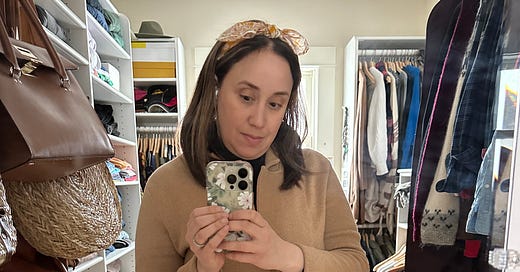



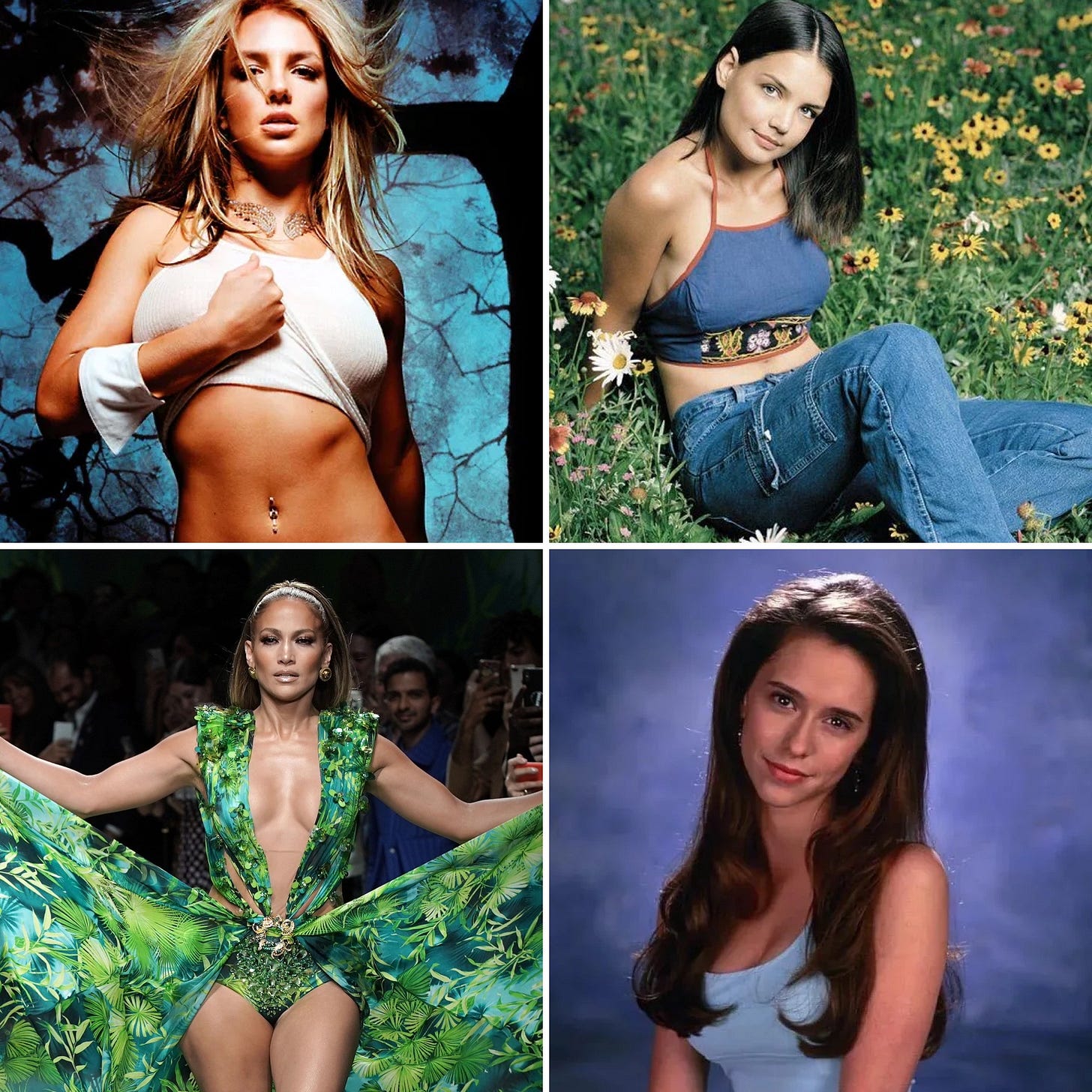
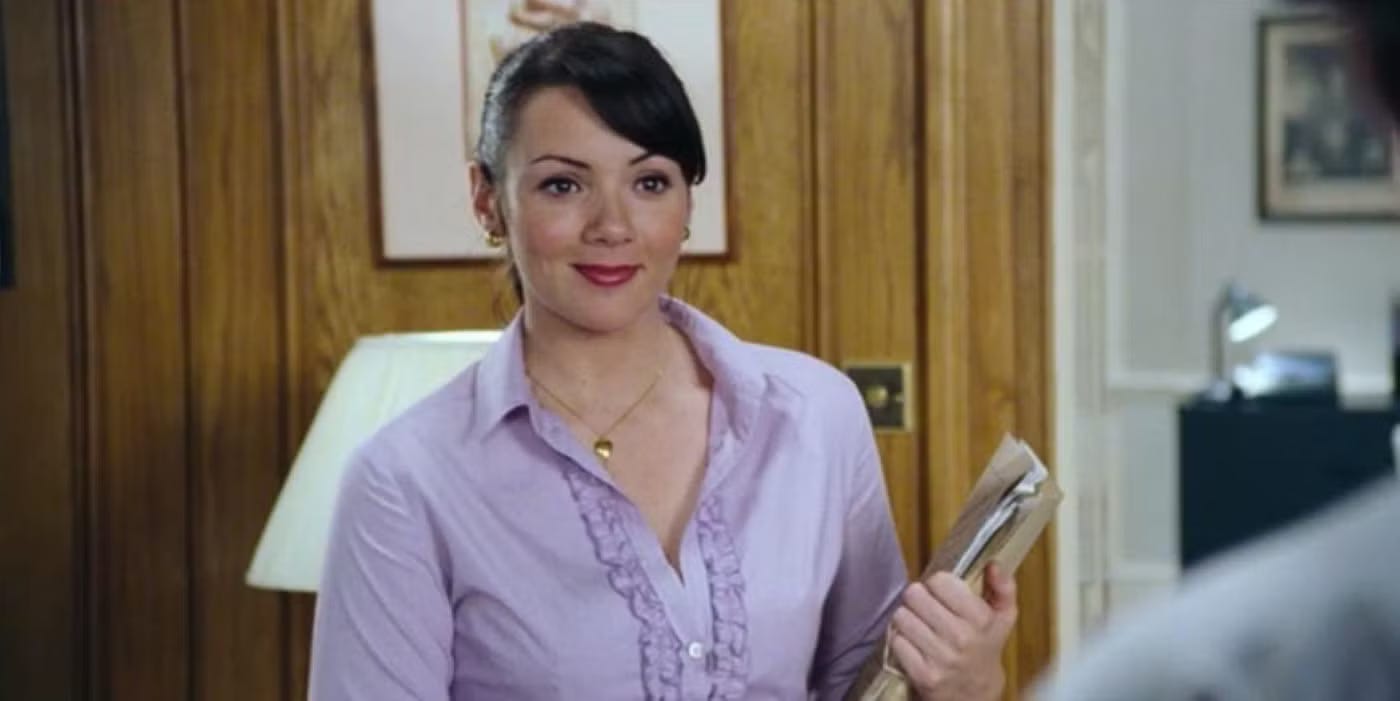
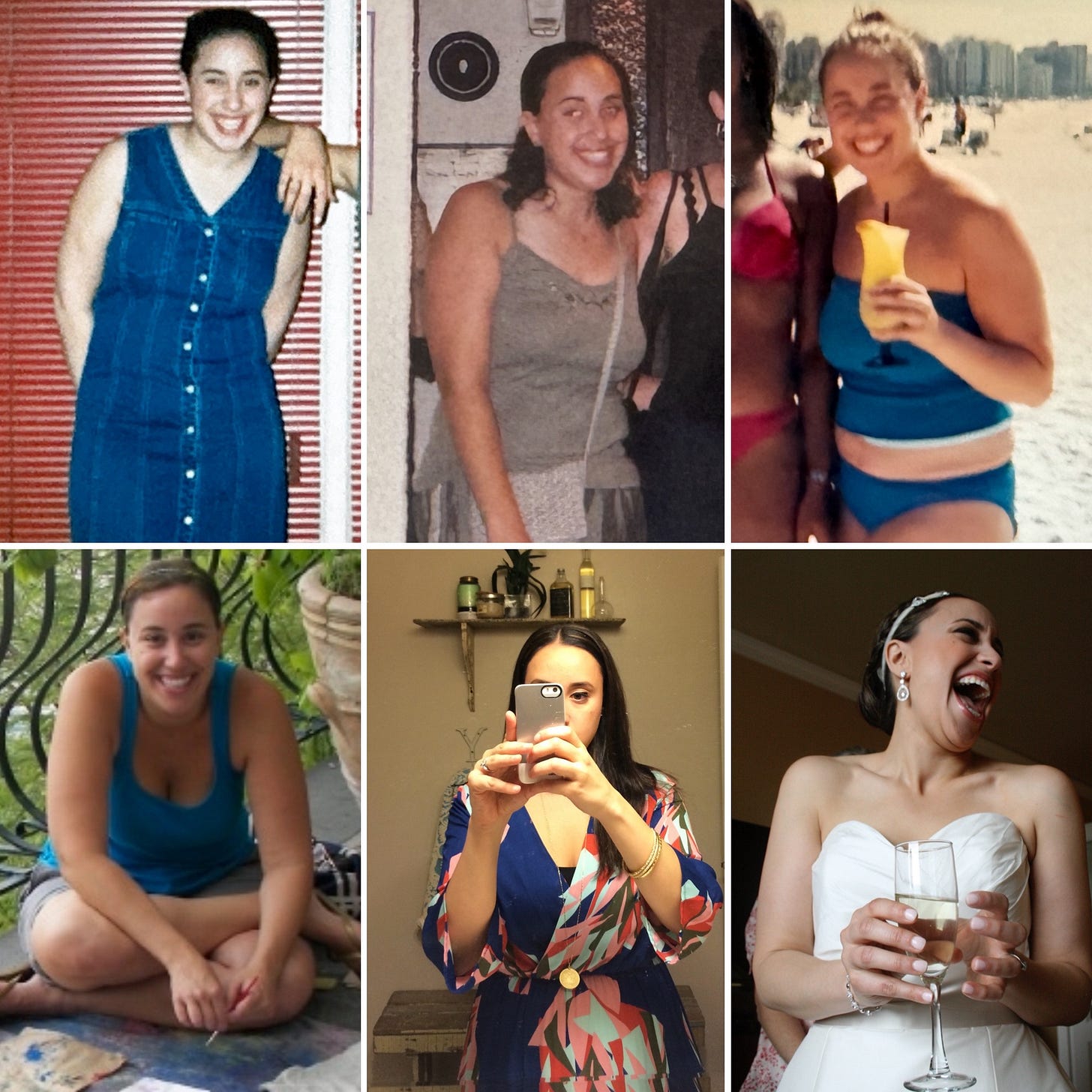

I relate to your words so much, as usual! Also WTF AUNT, cannot believe she said that at your mom’s funeral. I want to punch her in the throat! ❤️❤️❤️❤️